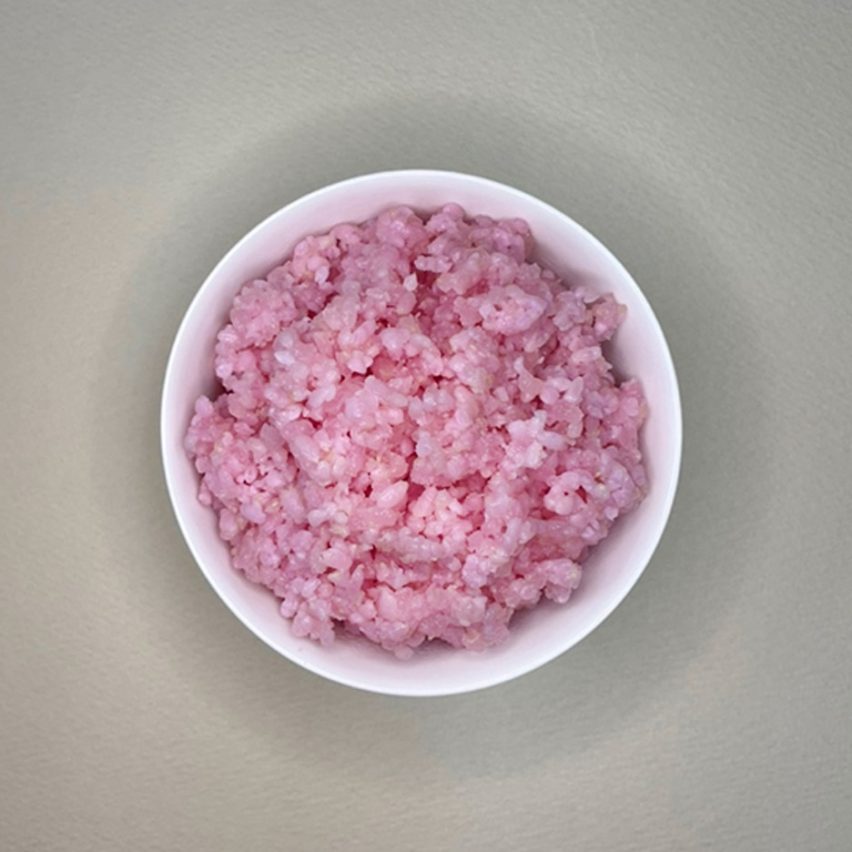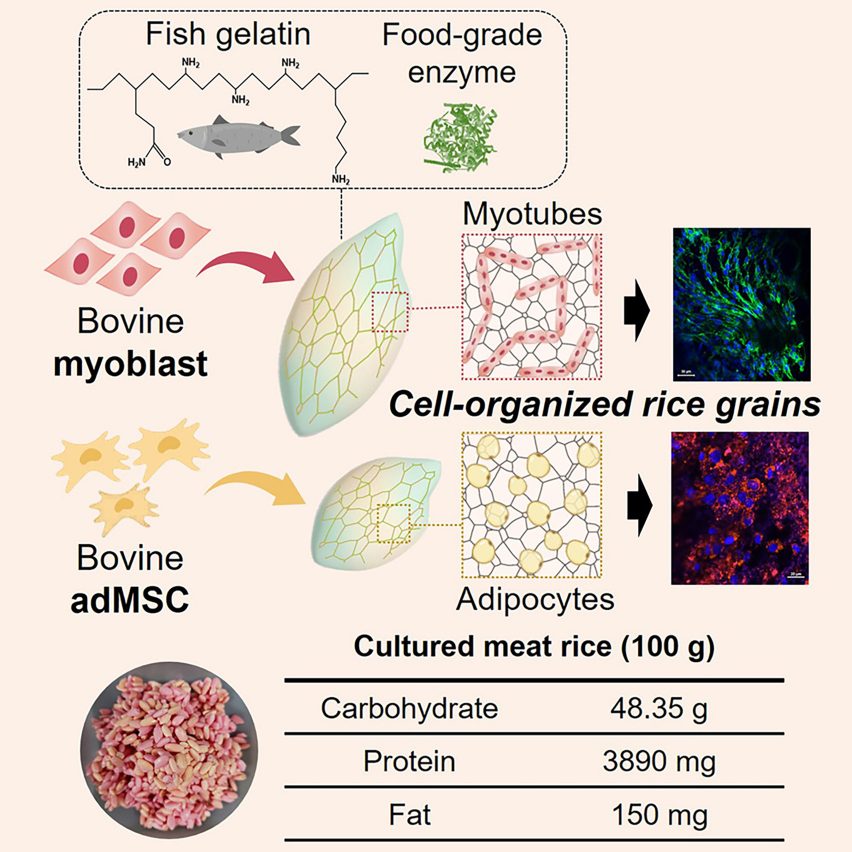View more
Scientists from South Korea's Yonsei University have invented what they believe to be a sustainable, high-protein food in the form of "beef rice", made by growing cow cells in grains of rice.
Tinged a pale pink from the cell culturing process, the hybrid food contains more protein and fat than standard rice while having a low carbon footprint, leading its creators to see it as a potential future meat alternative.
The beef rice was made by inserting muscle and fat stem cells from cows into grains of rice and leaving them to grow in a Petri dish.

Because the rice grains are porous and have a rich internal structure, the cells can grow there in a similar way to how they would within an animal. A coating of gelatine – in this case, fish-derived – further helps the cells to attach to the rice.
Although beef rice might sound like a form of genetically modified food, there is no altering of DNA in the plants or animals. Instead, this process constitutes a type of cell-cultured or lab-grown meat but with the beef grown inside rice.
In a paper published in the journal Matter, the Yonsei University researchers explain that their process is similar to that used to make a product already sold in Singapore – a cultured meat grown in soy-based textured vegetable protein (TVP).
Soy and nuts are the first foods that have been used for animal cell culturing, they say, but their usefulness is limited because they are common allergens and do not have as much cell-holding potential as rice.

The nutritional gains for their beef rice are also currently small, but the researchers from Yonsei University's Department of Chemical and Biomolecular Engineering say that with further optimisation, more cells and therefore more protein could be packed in.
The hybrid rice contains 3890 milligrams of protein and 150 milligrams of fat per 100 grams – just 310 milligrams more protein and 10 milligrams more fat than standard rice.
"Although hybrid rice grains still have a lower protein content than beef, advances in technology that can improve the cell capacity of rice grains will undoubtedly improve the nutritional content of hybrid rice," the researchers said in their paper.
The scientists also believe the product could be inexpensively commercialised and tout the short time frame required to boost nutrition through culturing.